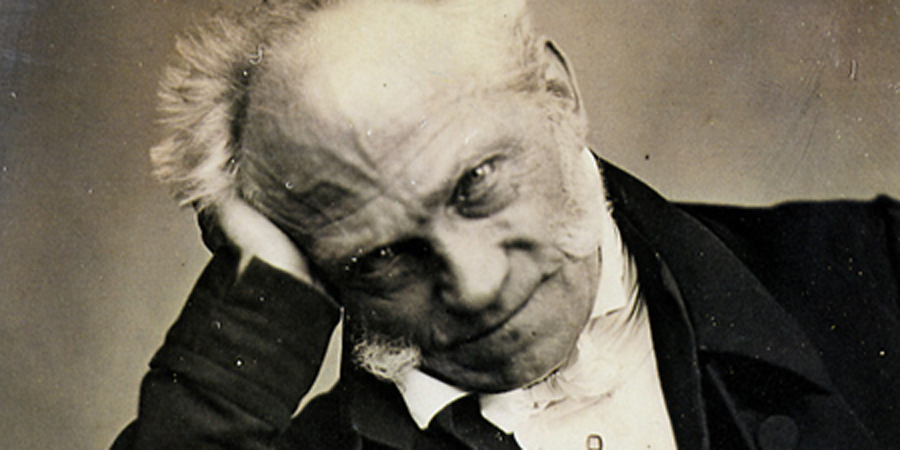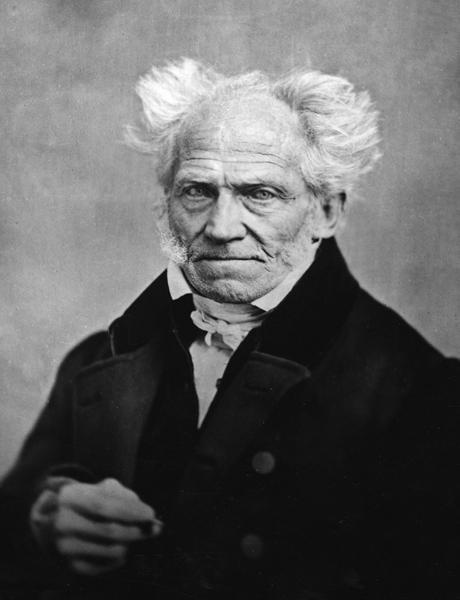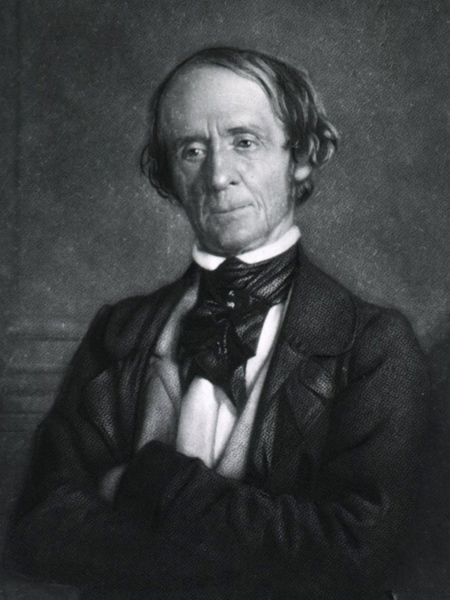
In my previous post on male pattern blindness—a bit of collateral from my current project on the idea of women’s equality—I promised profiles of four influential men whose failure to appreciate the equality of women was particularly striking. In each case, their principles and positions should have helped them to know better. But they didn’t.
My first subject is the renowned German philosopher Arthur Schopenhauer (1788-1860). The competition is stiff, but Schopenhauer is probably the most egregious misogynist in the Western philosophical tradition.
In 1851, three years after the American suffragist movement was launched with the Declaration of Seneca Falls, and the same year as Harriet Taylor Mill‘s “The Enfranchisement of Women,” Schopenhauer published “On Women.” In this notorious essay, he wrote that women:
- are “inferior to men in matters of justice, honesty, and conscientiousness”
- “exist entirely for the propagation of the race, and their destiny ends there”
- “remain children all their lives, for they always see only what is near at hand, cling to the present, take the appearance of a thing for reality, and prefer trifling matters to the most important”
- are “by nature intended to obey”

thinking some thoughts (1859)
Contemporary Schopenhauer scholars have been embarrassed by this misogynist screed. But here’s the thing: Schopenhauer’s misogyny is largely consistent with the main currents of Western philosophy from its birth in classical Greece right up to—well—right up to not very long ago. Aristotle wrote that you could tell women were inferior by how they sounded. Two thousand years later, Schopenhauer had progressed to assessing women by how they looked:
“One only need look at woman’s shape to discover that she is not intended for either too much mental or too much physical work.”
Arthur Schopenhauer, On Women, 1851
Schopenhauer should have known better for reasons both situational and philosophical.
Schopenhauer did not lack for extraordinary female role models. His sister, Adele, spoke several languages and was a poet, author, and artist. Her papercut silhouettes were published as book illustrations, and on their own. The German literary giant Johann Wolfgang von Goethe was inspired to write poems to accompany some of her papercuts.

Schopenhauer’s mother, Johanna Schopenhauer, was also a woman of considerable accomplishment. She was the first woman in Germany to publish under her own name. She wrote twenty-four books on a wide range of subjects, including several well-regarded works on art history. Her books remain in print to this day.
Despite the accomplishments of his mother and sister, Schopenhauer could still write that “women are and remain, taken altogether, the most thorough and incurable philistines.”
Schopenhauer’s blindness to the abilities of the women around him was a significant failing. It is made worse when we consider it in the context of his moral philosophy.
Schopenhauer built his ideas about ethics on a foundation provided by Immanuel Kant (1724-1804). Kant liberated morality from its religious moorings with his notion of the categorical imperative. This is mostly just a fancy way to say that there are some things that are right to do in and of themselves, rather than as a means to something else. Kant believed these imperatives could be sorted out with a universalized version of the Golden Rule: morality requires acting in the ways that you think everyone should act towards everyone else.
Schopenhauer argued that reason wasn’t sufficient for implementing Kant’s moral philosophy. He made the interesting point that our bodies are the only thing that we can perceive both from external observation and from internal feeling. That’s pretty cool in itself, but Schopenhauer also posited that this leads to a sense of empathetic knowledge. Empathy—the ability to understand and feel the needs of others and the effects of events on their internal feelings—is the touchstone for a humanist morality.
Empathy should have given Schopenhauer the key to seeing women’s equality. But in both his principles and his practice, Schopenhauer saw women as so different from himself that he was unable to make that empathetic connection. As a result, he failed to incorporate fifty percent of humanity into his moral schema. In addition to making him look ridiculous, Schopenhauer’s misogyny fundamentally overshadowed important parts of his contribution to philosophy.
The examples in Schopenhauer’s own family and his philosophy of empathy should have made him an advocate for women’s equality. Instead, he promoted a particularly vicious misogyny. Schopenhauer is a man who should have known better, but didn’t.
Moral: Advocating empathy is not the same as having empathy.

Next up: One of the nineteenth century’s leading physicians, Dr. Charles Meigs—a proponent and practitioner of women’s medicine and misogyny.
The Overview: Male Pattern Blindness
 Four Men Who Should Have Known Better: Arthur Schopenhauer
Four Men Who Should Have Known Better: Arthur Schopenhauer
Tinox says:
It certainly comes as a surprise to me, as Schopenhauer was otherwise a pretty amazing mind. In a way he fell pray of the limitations of his time and was unable to see through. Society assigns roles to each sex and these roles have not changed much since millennia. It’s unfortunate that he took the appearance of a thing for reality and drew such stark conclusions. Now, differences in physical strength between sexes are real (that’s why we have women and men categories in sports) but that’s certainly not a consequential issue and even worth discussing. I suspect he had issues with women in his own personal life and he was totally blindsided. Again, this is no reason to trash Schopenhauer, as cancel culture would like to. It is only a warning that his readings need to be understood in the context of his own time.
November 28, 2021 — 1:56 am
Kurt Taylor Gaubatz says:
I share your view that Schopenhauer made many important and brilliant contributions and that the context of the time is important to understanding the constraints and limits on anyone’s worldview. On the other hand, Schopenhauer writes about women precisely because the world is starting to change. My argument is that his place in that changing world, his particular circumstances, and his philosophy of empathy should have helped him better avoid this common error of his (and pretty much all previous) times.
February 20, 2024 — 12:05 am
Eric says:
Can you refute any of his actual observations though?
You say the quote “women are and remain, taken altogether, the most thorough and incurable philistines.” is refuted by his sister writing poems and his mom a few books? How does that contradict that they were driven by materialism? Even if it somehow did and his mother and sister were Paragons of female virtue it wouldn’t refute his general descriptor of reality.
After all “Individual and partial exceptions do not alter the matter;” as schope says at the beginning of the exact quote you tried to use in your character assault.
Women and men are different, things that are different are not equal by definition this isn’t to say I hate women any more than schope did it’s just an accurate description of reality.
Be I’d be curious if you could refute anything he said at all in “on women”
December 18, 2023 — 9:11 am
Kurt Taylor Gaubatz says:
I am astonished this has to be said, but we now have more than enough empirical evidence to see the abilities and contributions of women across the many disciplines where philosophers and others thought them incapable or inferior. Very many women clearly find fulfilment and agency in pursuits that were formerly denied them by those who thought like Schopenhauer. So, no, on this issue his view of reality is not at all accurate. The view that women, in general, are “incurable philistines,” and liars, and have no purpose beyond procreation, is an expression of unalloyed misogyny. Thus, your statement that you “you don’t hate women any more than schope” is not particularly reassuring. None of this is to say, of course, that Schopenhauer (and you) haven’t contributed other profound and important thoughts or things to the world.
February 19, 2024 — 11:59 pm